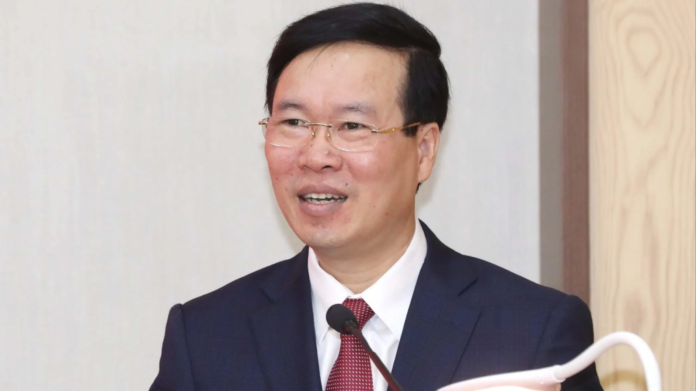
Vo Van Thuong, a senior Communist Party official, has been elected as the new president of Vietnam’s National Assembly, the country’s top legislative body. He was appointed to the position at the 15th session of the National Assembly on March 31st, 2023, with 95.15% of the votes in his favor.
Vo Van Thuong, 54, had previously served as the head of the Central Propaganda and Training Commission of the Communist Party of Vietnam, where he was responsible for overseeing the country’s media and cultural activities. He has also held various other high-level positions in the party and government, including as the Secretary of the Party Committee of Ho Chi Minh City.
In his inaugural speech, Vo Van Thuong stressed the importance of maintaining political stability and social order in Vietnam, and emphasized the need to continue implementing the country’s economic development plan. He also pledged to work towards promoting democracy, human rights, and social justice in the country.
The election of Vo Van Thuong as president of the National Assembly comes at a time when Vietnam is facing significant challenges, including economic slowdown, high inflation, and social unrest. The country’s leadership has been criticized for its handling of the COVID-19 pandemic, and there have been calls for greater political and economic reform.
Vo Van Thuong’s appointment is seen as a reflection of the Communist Party’s efforts to strengthen its control over the government and ensure stability in the face of these challenges. It is also part of a broader trend of leadership changes within the party, which has been undergoing a generational shift in recent years.
The National Assembly, which is comprised of 500 members, is responsible for passing laws, approving budgets, and overseeing government activities. The president of the National Assembly is one of the most powerful positions in Vietnam’s political system, second only to the General Secretary of the Communist Party.
Vo Van Thuong’s appointment is expected to have significant implications for Vietnam’s future political and economic direction. Some analysts see him as a conservative figure who is likely to prioritize maintaining political stability and continuing the country’s economic development policies. Others, however, see him as a potential reformer who may push for greater political and economic liberalization.


